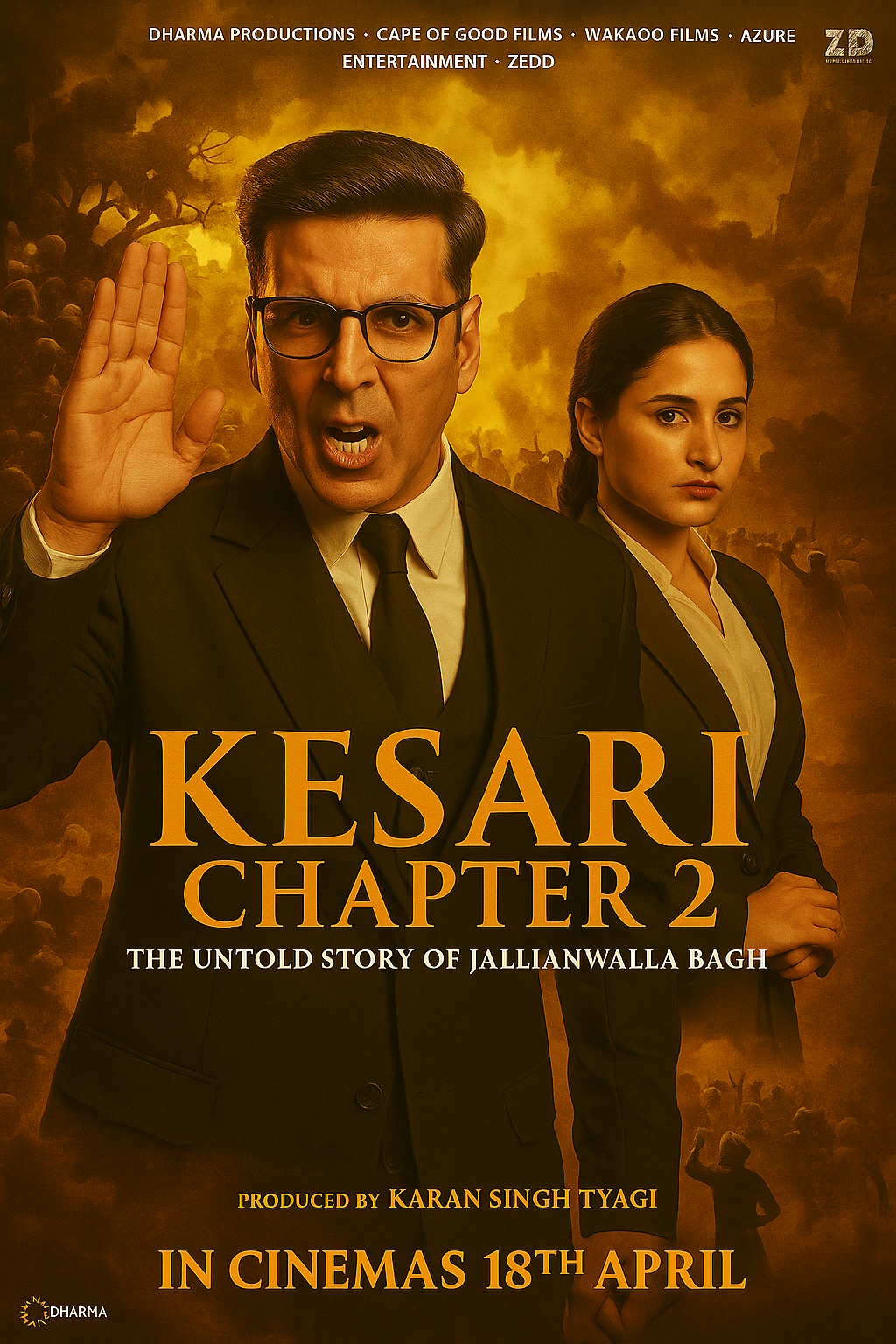Remember Kesari? This Isn’t That.
If you walked into the theatre expecting another battlefield saga like Kesari (2019)—think again. Kesari Chapter 2 isn’t about bullets, swords, or blazing guns. Nope. This one’s a slow burn… and honestly, that’s what makes it so unforgettable.
Because this time, the war isn’t on dusty battlegrounds. It’s in a British courtroom. And the weapon? Truth.

The Plot: Justice for a Wound That Never Healed
Let me set the scene: It’s post-1919. The Jallianwala Bagh massacre has left a scar on India’s soul. Hundreds of innocent lives lost. No accountability. And silence from the British Crown.
Enter C. Sankaran Nair—a gutsy lawyer (played brilliantly by Akshay Kumar) who decides enough is enough. He sues the British government. Yep, you heard that right. He literally files a case against the Empire.
The film is based on the book The Case That Shook the Empire by Raghu and Pushpa Palat—and trust me, it lives up to the title.
Akshay Kumar Is NOT Playing a Hero. He Is the Hero.
I’ve seen him do everything from action flicks to slapstick comedies. But here? He’s restrained, controlled, and dare I say... vulnerable.
There’s a courtroom scene—no spoilers, I promise—where he stares down the judge and just breathes. That silence? It spoke louder than any monologue. It gave me literal goosebumps.
Then there’s R. Madhavan as Advocate Neville McKinley, the Crown’s legal rep. Calm, composed, and a master of manipulation. Watching him and Akshay go toe-to-toe felt like watching two heavyweights in a mental chess match. I was hooked.
Direction & Screenplay: Karan Singh Tyagi Brings Grit with Grace
Okay, real talk: historical dramas can be boring if not handled well. Too preachy. Too dramatic. But director Karan Singh Tyagi gets it just right.
He doesn’t hammer patriotism down your throat. Instead, he lets the story unfold through pain, purpose, and those little courtroom victories that make you want to scream, “YES!”
The writing is crisp. The dialogues are sharp. There’s even humor in the bleakness—like when Ananya Panday’s character, Dilreet Gill, calls out the hypocrisy of British “civilization.” It’s subtle, but it stings.
Music, Cinematography, and All the Good Stuff
Amit Trivedi’s background score? Chef’s kiss. It’s haunting, but not overwhelming. The music lingers like an aftertaste—just enough to keep your heart heavy.
Visually, the film opts for a muted palette. Lots of browns and greys. It makes sense. The story itself is emotionally heavy—you don’t need colorful distractions.
What Makes Kesari Chapter 2 Different (and Better)
Here’s the thing: We’ve seen so many freedom struggle films. But most of them glorify violence or martyrdom.
This one glorifies resistance through intellect. Through the law. Through relentless pursuit of justice.
And in today’s world—where truth often feels like an endangered species—this message hits hard.
Box Office Buzz: Not Just Hype
The movie’s already raked in ₹3 crore in advance bookings for Day 1, and early reviews are glowing. Political leaders like Hardeep Singh Puri called it a “cinematic ode to India’s freedom movement.” Even Delhi CM Rekha Gupta couldn’t stop praising it.
And honestly? They’re not wrong.
Key Takeaways
- What it is: A legal drama based on the aftermath of the Jallianwala Bagh massacre.
- Why it matters: Shines a spotlight on C. Sankaran Nair, a forgotten hero of India's freedom struggle.
- Best part: The intense courtroom scenes between Akshay Kumar and R. Madhavan.
- Rating: ⭐⭐⭐⭐½ (4.5/5)
Your Burning Questions, Answered
Q: Is Kesari Chapter 2 a sequel to the 2019 film Kesari?
A: Not directly. While it shares the name and Akshay Kumar, the storyline is entirely different—this one's a legal-political drama, not a war film.
Q: Is it historically accurate?
A: It’s based on the book The Case That Shook the Empire, and while cinematic liberties are taken, the essence is very real.
Q: Can I watch it with family?
A: 100%. There’s no gore or inappropriate content. Just intense drama and lots of emotion.
Why You Need to Watch This Film
Honestly, if you care even a little about history, justice, or just solid storytelling—watch this movie.
It’s not just a film. It’s a mirror. A reminder of a time when standing up meant risking everything. And we need more stories like that today.


